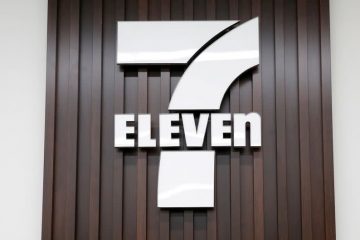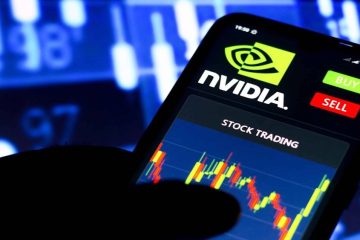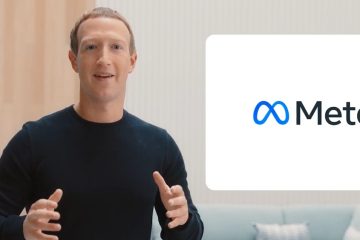Crackdown on TikTok Hits Overdrive, with Sale or Shutdown Being Considered

After months of behind-the-scenes lobbying on Capitol Hill, a bill that would either outright prohibit TikTok in the US or mandate its sale is rushing toward a vote in the House. One of the most downloaded apps in the nation may soon face demonetization as a result of this unexpected campaign, which has piqued the interest of potential buyers.
For years, lawmakers have criticized TikTok, worried that the app’s parent company in Beijing will either share user data with the Chinese government or use the platform to spread Beijing’s propaganda and influence American political views. However, there were opposing views that a strong attack on TikTok may provoke a reaction from the app’s millions of users.
A fresh measure passed the House Energy and Commerce Committee 50-0 this week, breaking what appeared to be a stalemate in the efforts. It seemed like TikTok’s attempt to get users to contact their legislators in Congress to voice their opposition to the measure backfired, as it simply served to strengthen the stance of the bill’s supporters.
Because of the bill, TikTok was taken aback. The business had been keeping tabs on the bill, but now claims it will refuse to comply with any data requests from the Chinese government. According to some in the know, though, executives weren’t anticipating the initiative’s meteoric rise in popularity. After passing out of committee, the measure will be considered by the entire House on Wednesday; both politicians and TikTok insiders anticipate a successful vote. The next stop will be the Senate, pending approval.
The bill’s co-author and head of the House Select Committee on the Chinese Communist Party, Republican Mike Gallagher of Wisconsin, expressed his gratitude and expressed the hope that the senators would move quickly after discussing the matter with him. One of the co-authors of the TikTok bill was Wisconsin Representative Mike Gallagher.
In order to avoid a ban on the platform from U.S. app stores and web hosting providers, the legislation demands that Beijing-based parent company ByteDance sell its shares in TikTok. With the bill’s passage into law, ByteDance would have little over five months to meet the requirements. More than 170 million Americans use TikTok, therefore according to a spokesman, they consider this a prohibition. The business argues that it would be impractical and hurt the app’s worldwide appeal to separate the US and international parts of the content app.
American media and IT behemoths are already in the area. Some executives have been talking about purchasing TikTok in the past few days, in the event that ByteDance decides to sell. The former CEO of video game publisher Activision, Bobby Kotick, has reportedly shown interest in ByteDance co-founder Zhang Yiming. The projected cost is in the multi-hundred-billion-dollar range.
Partners are being sought for by Kotick. Those in the know say that earlier this week, during a dinner at an Allen & Co. conference, Kotick brought up the possibility of a partnership to acquire TikTok to a table where OpenAI CEO Sam Altman was sitting. If a partner like Kotick could secure the necessary funds, OpenAI might acquire TikTok and utilize it to train its AI models.
If ByteDance decides to sell TikTok, Bobby Kotick—a former CEO of Activision who was seen last year—has stated his interest in purchasing the company. Image credit: Kevin Dietsch/Getty Images
According to an insider, TikTok has two plans to prevent the bill from passing into law. The first is the Senate, where some lawmakers have voiced their disapproval of a bill that would essentially outlaw the app in the United States. They have cited concerns about government interference with businesses and free speech as reasons for their resistance.
If the bill were to get signed into law by President Biden after passing the Senate and the House, TikTok might file a challenge challenging its constitutionality, claiming that it infringes upon the First Amendment. A federal judge halted the state’s attempt to prohibit the app after Montana did so last year, citing worries about free expression as the reason.
The bill may get additional traction in the Senate after Biden pledged on Friday that he would sign it into law if Congress approved it. Chuck Schumer (D-N.Y.), the majority leader of the Senate, stated that a ban “should be looked at” without pledging to vote on the House bill. In order for a bill to move forward in the Senate, which the Democratic party controls 51–49, it usually needs 60 votes.
“I’m not going to nitpick at it, other than to say the intent behind it is something I strongly support and I think it’s impressive that it’s moving,” stated Marco Rubio (R., Fla.), a senator who wished to examine the bill more closely. He was an early voice in the movement to get the app banned, which happened around four years ago.
Concerns about congressional efforts to ban the app have been voiced by a number of senators.
Republican senator from South Carolina Lindsey Graham stated on Sunday’s “Meet the Press” broadcast by NBC that he was “definitely conflicted” and uncertain of his voting position. Maybe protecting American data from Chinese hackers requires banning TikTok. “It would be great if you could figure out how to avoid that, though,” he added.
Sen. Rand Paul (R., Ky.) stated on Friday that he does not believe that ownership in corporations should be banned solely because certain governments or countries are not to one’s liking.
The House Energy and Commerce Committee swiftly passed the measure after months of behind-the-scenes negotiations with pragmatic and deal-making legislators. Democrats Raja Krishnamoorthi of Illinois and Gallagher of Wisconsin, who head the House panel that deals with China, have been collaborating with the White House on the bill for months.
Those in the know indicated that Deputy Attorney General Lisa Monaco was instrumental in making this endeavor go more smoothly. According to one source, Krishnamoorthi sought Monaco’s assistance because the latter was a prominent advocate for divesting from or banning TikTok and a key figure in the Biden administration.
Having Monaco on board as a top official in the Biden administration aided in the drafting of the legislation and, according to one source, swayed House Democrats to approve it. The national-security officials of the Biden administration also chipped in, meeting behind closed doors with lawmakers to brief them on the dangers posed by TikTok to the country’s safety.
A prohibition or disengagement from TikTok is something that Deputy Attorney General Lisa Monaco is in favor of.
Representative Josh Gottheimer (D-N.J.) stated that the bill was designed to include members from all sides, even those who were initially skeptical. “Our foreign adversaries who spread false information and gather personal information about Americans are the only ones it addresses.”
Both Democrats and Republicans admire Gallagher for his expertise on the subject, and he enjoys widespread support from both parties. In 2023, his endeavors seemed to hit a wall, but they were rekindled in part by the aftermath of the October 7th attack on Israel by Hamas, according to sources close to politicians and TikTok. Users of the video-sharing app TikTok wasted no time posting footage of the incident and the Israeli offensive in Gaza. There have been increased demands to ban the app in the US after some senators claimed that TikTok seemed to prefer anti-Israel and pro-Palestinian content.
The legislators’ concerns about the videos on TikTok, according to the company’s representative, are user-generated. TikTok also claims to have moderated pro-Israel and pro-Palestinian content fairly.
Concerns over TikTok’s “differential treatment of different topics” became apparent on October 7, according to Krishnamoorthi, who added that the upcoming election had further added fuel to the fire. A lot of people are worried that TikTok could be used for interference.
Trump, in his capacity as president, was the first to try to get ByteDance to sell TikTok. Efforts to prohibit TikTok from government-owned smartphones have since faltered, but lawmakers have taken the first step. Officials in the Biden administration reasoned that TikTok posed a danger to national security, but they weren’t sure they had the power to really prohibit the program or cut ties with its Chinese owner. The latest TikTok measure is an attempt to grant the president explicit power to do just that.
Should the measure be passed into law, ByteDance would be granted little over five months to meet the requirements. Image credit: How Young/Shutterstock
The Committee on Foreign Investment in the United States is an executive-branch panel with whom TikTok has been negotiating for years on the company’s ability to stay in the nation. Despite their best efforts, no agreement has been achieved. Talks between the US government and TikTok on a possible agreement to store data from American users on Oracle Corp. servers in the US and restrict access to it began in 2022. According to a prior article in The Wall Street Journal, senior administration officials, including Monaco, thought it wasn’t enough.
Without a formal agreement, TikTok stored user data through a program named Project Texas. According to a representative from TikTok, the company has taken more measures than other US companies to isolate and secure user data, and all data kept in the US is housed in the Oracle cloud.
On Thursday, Trump seemed to change his mind, saying on social media that a ban on TikTok would benefit Facebook, owned by Meta Platforms, which he branded as the “enemy of the people.” Although Trump did not explicitly urge Republican members to oppose the plan in his comments, his views have considerable influence among them. Meta chose not to address that allegation on Friday.
Representative Kat Cammack (R., Fla.), who is a member of the House Energy and Commerce Committee, stated, “I don’t think it will slow momentum in the House because people who have read the legislation, they understand what we’re doing here.” I would never knowingly allow our foreign enemies to obtain this information as an America First candidate.This is the car that will take us where we need to go.










